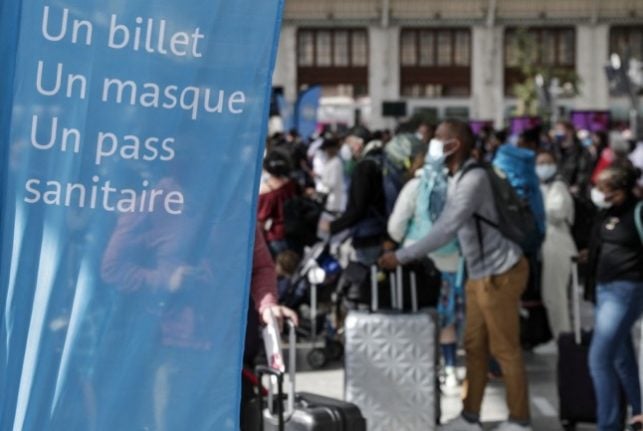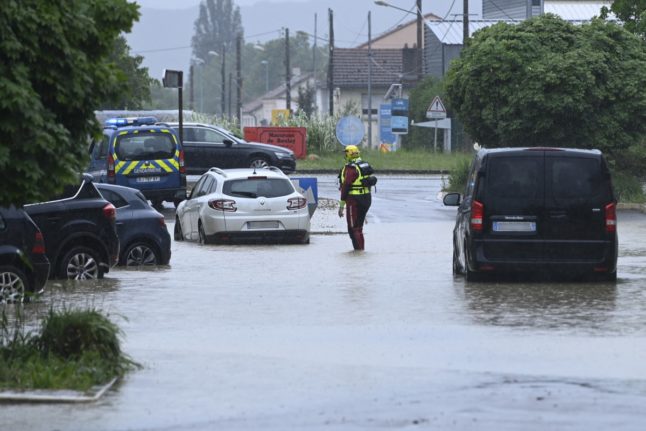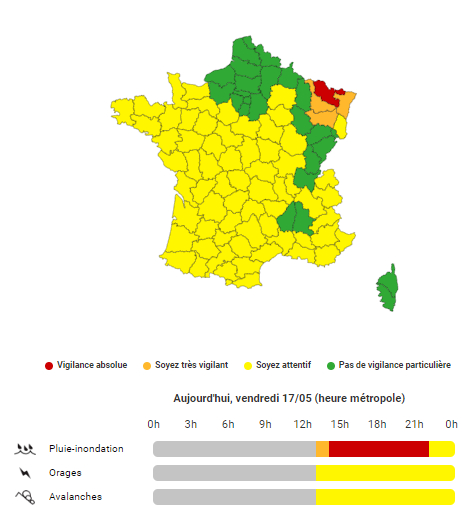Travel rules – First of all, you need to make sure you have the required paperwork to enter France.
France is using a traffic light system that differentiates between vaccinated and unvaccinated travellers, so the documents you will need vary depending on your vaccine status and where you are travelling from – full details HERE.
One thing to note is the definition of ‘fully vaccinated’ under the French rules. You count as vaccinated if;
- You have received a vaccine approved by the European Medicines Agency, these are; Pfizer, Moderna, AstraZeneca (including Covishield) or Johnson & Johnson, but not Sinopharm or Sputnik
- It has been 14 days since your final vaccine dose, or four weeks if you received the single-dose Johnson & Johnson vaccine
- Most people have two doses of the vaccine, but France administers only a single dose to people who have previously recovered from Covid and this counts as ‘fully vaccinated’ under French rules (although not UK ones).
Health passport – once you have made it to France, the biggest thing to be aware of is the pass sanitaire (health pass).
This is required to access a wide range of venues including bars, cafés, restaurants, cinemas, museums, tourist sites, large gatherings and long-distance travel within France.
You can use the pass to show either your fully vaccinated status, a recent negative Covid test or recent recovery from Covid – full details of how the pass works HERE.
For the health passport, the definition of ‘fully vaccinated’ is the same as above, but you count as vaccinated seven days after your final dose, not 14.
If you were vaccinated in the EU or Schengen zone, the code on your vaccination certificate should be compatible with the French app, but if you were vaccinated elsewhere you will need to either convert your certificate or add it to the French app.
If you were vaccinated in England or wales, click here
If you were vaccinated in the USA, click here
If you were vaccinated in a non-EU country other than England, Wales or the USA, click here.
READ ALSO How unvaccinated people can use the French health passport
Mask rules – face masks are still required in many places in France and unlike in some countries there are no exemptions for those with medical conditions.
Masks are required in all indoor public spaces including shops and on public transport.
The national rule on wearing masks in the street has been scrapped but many local authorities – particularly those in tourist areas – have imposed their own local rules that require masks in public outdoor spaces. A mask is not required in indoor spaces covered by the health passport, but again local authorities can put in their own rules on this so it is best to check.
IN DETAIL – Where do you still have to wear a mask in France?
If you are caught not wearing a mask, or wearing one so that it doesn’t cover both your nose and mouth, you can be fined €135.
Tests – many countries still have entry test requirements, so you might need to get a test while you are in France in order to get home.
If you need a test for travel, health passport or any other reason – including if you develop Covid symptoms – these are easy to access in France and are available on a walk-in basis at pharmacies and pop-up testing centres or pre-booked online.
Non-residents of France now have to pay for tests, but costs are capped by the government at €49 for a PCR test and €29 for an antigen test.
Whether you get an antigen or PCR test you get a full results certificate with a QR code, so there is no need to get special ‘travel tests’.
READ ALSO The essential French vocab for getting a Covid test
Self isolation – no-one wants to think about this, but what if you develop Covid symptoms while you are on holiday? Or are alerted as a contact case by the French Covid tracker app?
If you have a positive Covid test you will need to self-isolate for 10 days, and if you are alerted as a contact case (the French Covid tracker app is Tous Anti Covid, the same one you use for the health passport) you will need to take a test. If the result is negative and you are fully vaccinated you do not need to self isolate but if you are not vaccinated you must isolate for seven days, even if your test result is negative – more details here.
Hopefully you won’t need to know this, but if your symptoms are severe and you think you need hospital treatment, call an ambulance. The number is 15.
READ ALSO Emergency in France – who to call and what to say
Brexit – not actually pandemic related, but if you are British and haven’t travelled since January 2021, remember that a lot of things have changed since the end of the Brexit transition period – here’s a full list.
Both the Covid situation and the rules can change quite quickly, so keep an eye on our homepage for the latest.






 Please whitelist us to continue reading.
Please whitelist us to continue reading.
So why isn’t this mentioned, “Due to the current situation in France, even fully vaccinated travelers could be at risk of contracting and spreading Covid-19 variants, said the American health protection agency”?